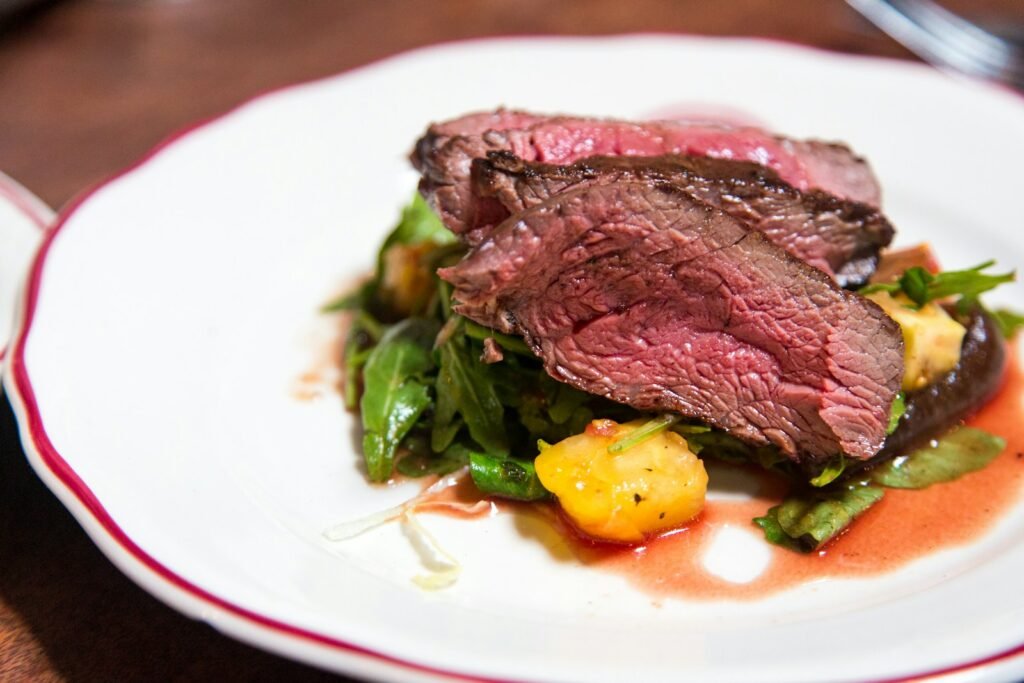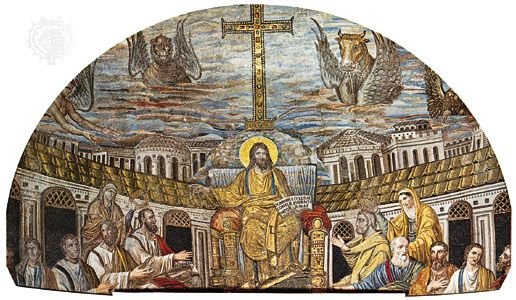Is eating blood still forbidden for Christians, or is it just an old rule? Can Christians Eat Blood? This question makes us think about the Bible, Christian history, and how different groups see it. We’ll look into what the Old and New Testaments say about blood, and what it means for Christians today.
This topic makes us question our beliefs and think more deeply about our choices. It’s not just about following rules, but also about understanding their meaning in our lives.

Understanding the Biblical Prohibition Against Blood
The Bible says not to touch blood because it’s sacred. This comes from Genesis 9:4 and Leviticus 17:10-14. It believes blood is life, so it’s very important.
Acts 15:29 also talks about this rule for Christians. Leaders of the early church debated if these old rules still applied to new followers. They wanted to include everyone while respecting the past.
These laws have changed over time. They show the challenge of keeping cultural traditions and the message of salvation together. For Christians, knowing about the ban on blood helps us understand why some foods are off-limits. It shows the deep spiritual meaning behind these food rules.
Historical Context of Dietary Laws
Dietary laws in ancient Israel were key to their religious life and identity. They believed certain foods, like those with blood, had deep spiritual meaning. This dietary laws historical context shows how rituals and food were closely linked, shaping their culture.
These laws helped the Israelites stand out from other groups, creating a strong sense of community and divine connection. Blood was seen as crucial for making amends and purifying, key to their worship. After the Exodus, these laws were a way to keep the community strong.
Understanding this history is vital when looking at how dietary practices changed over time. It helps us grasp the early church’s views on food and religious freedom.
Can Christians Eat Blood? An Examination of Acts 15
Acts 15 tells us about a key moment in early Christianity. The Jerusalem Council was trying to figure out if Gentile believers had to follow Jewish food rules. They were asking if these followers of Christ needed to avoid eating certain foods, like blood.
The council decided that unity in the church was key. They said Gentile believers didn’t have to follow all the Jewish laws. This was a big change, making it easier for many to join Christianity without extra rules.
Even though they relaxed the food rules, the council gave some advice. They told people to avoid “what has been strangled” and “blood.” This showed respect for Jewish traditions while welcoming everyone into the faith. This decision changed how Christians lived, making the faith more open to different people.
Significance of Blood in the Old Testament
Blood played a key role in the Old Testament, especially in the sacrificial system. It was seen as a symbol of life and a way to make things right. The Bible says in Leviticus 17:11, “The life of the flesh is in the blood.” This shows how important blood was in religious rituals.
The sacrificial system was all about pouring out blood. It was God’s way to deal with sin and keep His people holy. Sacrifices were made to show the need for forgiveness and to admit to mistakes. Each sacrifice taught a deep lesson: sin must be paid for, and blood was the payment.
This idea of sacrifice was not just for the Israelites. It also pointed to a greater sacrifice that would come later through Christ. Today, we can see how these old practices still matter. They help us understand justice, being accountable, and the value of human life.
New Covenant and Dietary Freedom
The New Covenant changed how believers viewed dietary laws. It brought dietary freedom in Christianity. This meant Christians could eat more foods without strict Old Testament rules. It focused on spiritual cleanliness, not just ritual cleanliness.
A key moment in this change is in Acts 10. Peter had a vision from God that told him to eat foods once seen as unclean. This showed that being spiritually clean isn’t about what you eat. It showed the New Covenant’s focus on grace and personal choice in food.
Today, Christians need to respect each other’s food choices while staying united. The idea of Christ and dietary laws encourages talking about food habits. This helps everyone feel welcome, no matter their food beliefs. It also helps deepen faith through shared experiences.
For more on the history of not eating blood, check out this article. It gives more details on the early church’s views on blood consumption.
In short, the New Covenant gives Christians dietary freedom in Christianity. It makes food choices based on personal beliefs, not strict rules. This brings unity and understanding among believers.
Jewish Perspective on Eating Blood
The Jewish view on blood consumption comes from deep tradition and religious beliefs. They don’t eat blood because of biblical rules in Leviticus 17:12. This shows how important blood is seen as a symbol of life and a way to make amends.
For Jewish people, not eating blood is more than just a food choice. It’s a key part of who they are culturally and religiously. They follow these rules in their daily lives and during important religious events. This shows their strong bond to their heritage and beliefs.
Today, the Jewish view on blood is still important. Many stick to these dietary laws, showing their loyalty to tradition in a changing world. This unity within the community shows how vital these laws are to their identity and way of life.

Modern Interpretations of the Blood Prohibition
Today, Christians have different views on eating blood. Different groups see the Bible in different ways, leading to many beliefs about blood products. Some stick to the Old Testament, seeing blood as sacred and avoiding it.
Others look at the New Covenant for guidance. They believe in freedom and think about their own beliefs and culture. They focus on living with grace and the main message of the gospel, not just old rules.
Talking about blood consumption today helps people share their thoughts and respect each other’s beliefs. Christians are learning to think deeply about their choices. They see the importance of grace and understanding in their food choices, showing how culture affects their beliefs.
Unity within the Church and Cultural Sensitivities
Church unity shines in diverse groups, especially when cultural food choices matter. Believers respecting each other’s backgrounds build a place of love and respect. This makes everyone feel they belong and can join in without giving up their beliefs.
Acts 15 gives us a key lesson. It tells Gentile believers to respect Jewish traditions. This approach helps different faiths live together and strengthens church unity. By accepting various food habits, churches can avoid conflicts and focus on love.
Combining faith with cultural understanding makes the church more welcoming. This unity needs ongoing talks, learning, and understanding. It helps believers from different cultures work together well. They create a space where everyone’s food choices are respected, building strong faith-based bonds.
Personal Conscience and Dietary Choices
In today’s diverse Christian community, personal conscience in dietary matters is key. Romans 14 tells us to make our dietary choices based on our own beliefs and understanding. It’s important to respect each other’s views, leading to a rich dialogue on dietary freedoms and personal faith.
Christian dietary choices are very personal. They can be shaped by culture, theology, and ethics. Paul teaches us to respect these differences. This way, everyone can share their beliefs without fear of being judged. It helps keep the Church united despite our differences.
Thinking about how our food choices affect others is also important. Making thoughtful eating choices helps our own spiritual growth and builds community. It’s vital for getting along with others in our faith.
FAQ
Can Christians Eat Blood?
The Bible says not to eat blood, as seen in Genesis 9:4 and Leviticus 17:10-14. It sees blood as sacred, representing life. Acts 15:29 talks about if these rules still apply to Christians today.
How does Acts 15 influence dietary restrictions for Christians?
Acts 15 shows the Jerusalem Council’s decision. They said Gentile believers don’t have to follow Jewish food laws, including avoiding blood. This changed the Christian faith to be more welcoming.
What were the dietary laws in ancient Israel?
In ancient Israel, dietary laws were based on biblical commands. They honored life’s sanctity and blood’s role in sacrifices. These laws helped define Jewish identity and community.
What is the significance of blood in the Old Testament?
Blood was key in the Old Testament’s sacrifices. It symbolized atonement and life’s sanctity, as in Leviticus 17:11. This set the stage for Christ’s ultimate sacrifice in the New Covenant.
How did the New Covenant change dietary laws for Christians?
The New Covenant, as seen in Colossians 2:16, freed Christians from Old Testament food laws. It moved to a focus on grace over strict rules, allowing more freedom in what to eat.
What is the Jewish perspective on consuming blood?
Jews still avoid blood because of its sacredness and link to life and atonement. This view affects their food choices even today.
How do modern Christian interpretations vary regarding the blood prohibition?
Christians today have different views on blood consumption. Some stick to avoiding blood products based on the Bible. Others see the New Covenant as giving them freedom, sparking debate.
Why is church unity important regarding dietary practices?
Keeping the church united is crucial, especially in diverse groups. Acts 15 shows the importance of respecting each other’s traditions. This helps maintain harmony and allows for different food choices while staying true to the gospel.
How does personal conscience impact dietary choices for Christians?
Personal beliefs greatly influence Christian food choices today. Romans 14 advises respecting each other’s views on food. This encourages understanding and respect among different beliefs within the faith.

Rockin’ the faith, one verse at a time!
Growing up, the Bible’s stories deeply impacted me. Now, with over 15 years of preaching experience, I blend timeless teachings with modern technology, making them relevant for today’s world.
Bible Hub Verse is my platform to share historical insights and thought-provoking articles, exploring both familiar and uncommon Christian topics. My passion is building a welcoming online space for everyone to learn, grow in their faith, and discover the Bible’s enduring message.
Join the journey!
God bless you.






